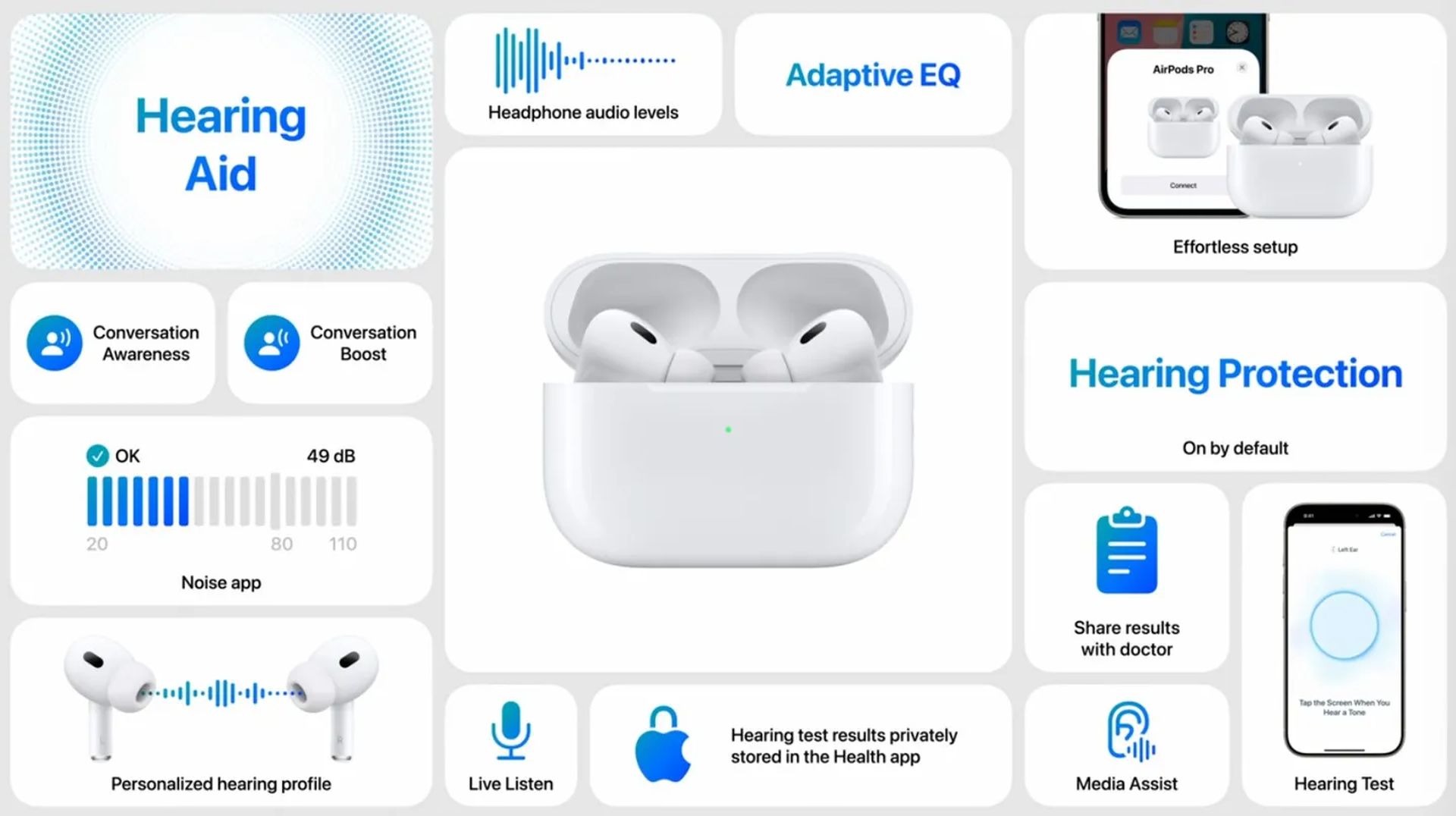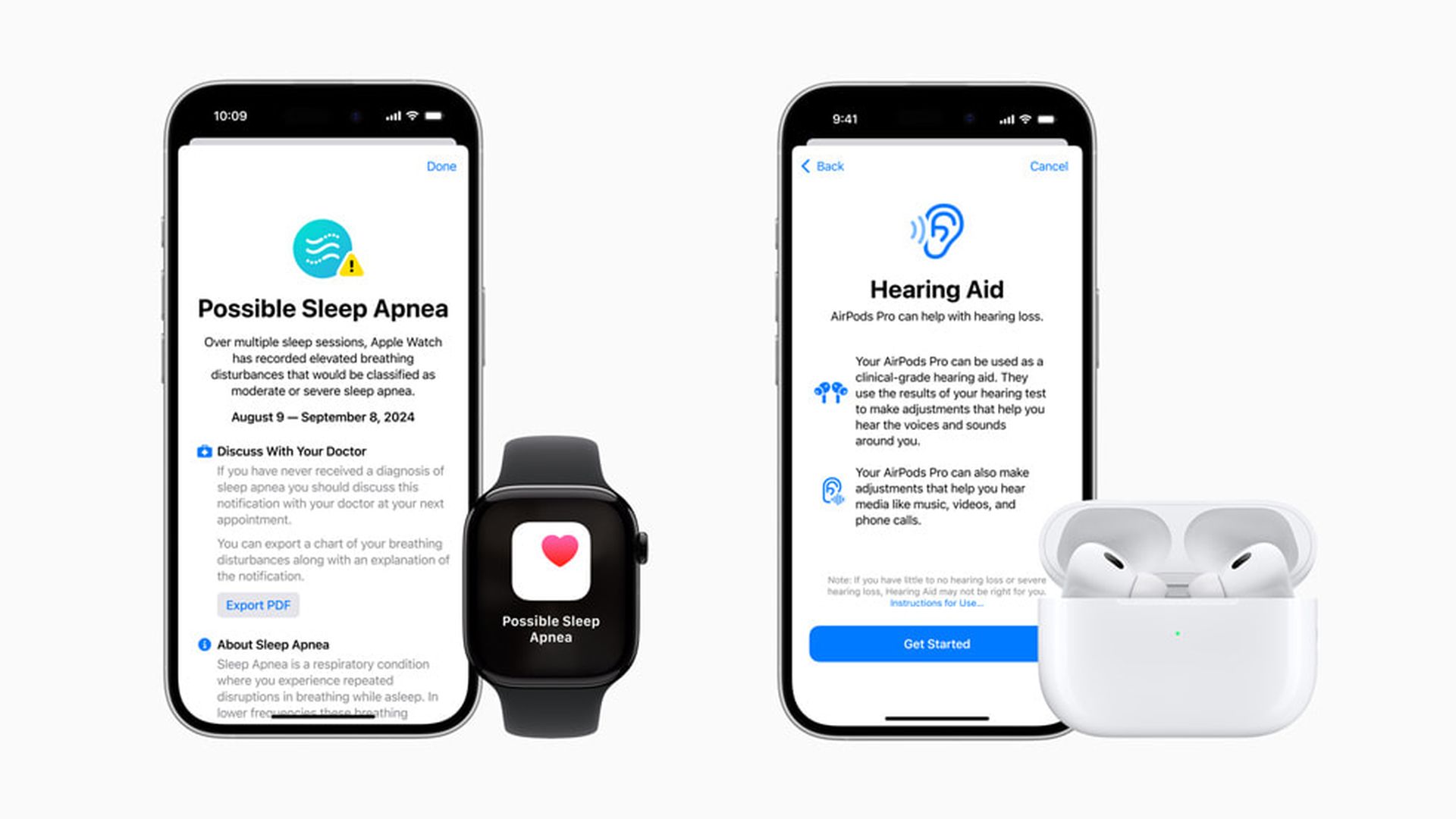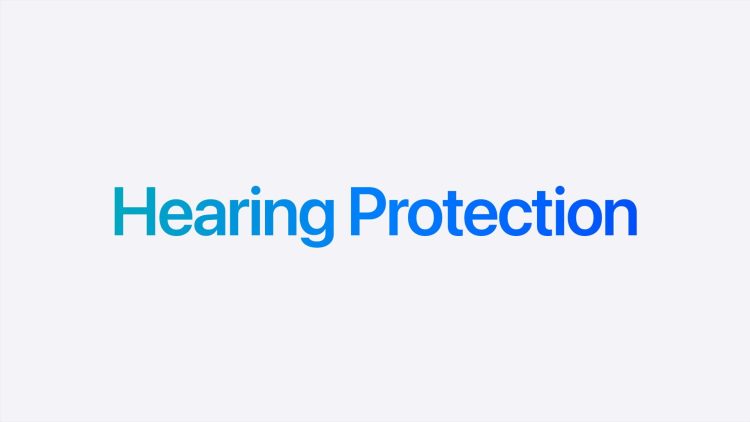Apple hearing aid technology has caught the attention of the healthcare field with the introduction of the latest AirPods Pro model. Announced during Apple’s latest product event, these wireless earbuds can now be used as clinical-grade over-the-counter hearing aids. This new feature covers individuals with mild to moderate hearing loss. And instead of spending thousands of dollars on expensive hearing aids, they’ll get a nice pair of headphones.
Apple Hearing Aid no one earbud
The most important detail in Apple’s announcement is that the new AirPods Pro are not just ordinary headphones, but also function as hearing aids – and Apple Hearing Aid technology is behind it. At just $249, the AirPods Pro 2 are affordable compared to traditional prescription hearing aids, which can cost thousands of dollars.
 According to Apple’s Vice President of Health Sumbul Ahmad Desai, the new AirPods Pro will use advanced technology to enhance frequencies, making sounds clearer and more vibrant. This development could make hearing aids more accessible to the more than 30 million US adults suffering from some degree of hearing loss, many of whom currently do not seek help due to the high cost of traditional options.
According to Apple’s Vice President of Health Sumbul Ahmad Desai, the new AirPods Pro will use advanced technology to enhance frequencies, making sounds clearer and more vibrant. This development could make hearing aids more accessible to the more than 30 million US adults suffering from some degree of hearing loss, many of whom currently do not seek help due to the high cost of traditional options.
Apple hearing aid feature is designed to boost specific frequencies, which can help users better perceive speech and environmental sounds. The feature uses machine learning to make real-time adjustments, catering to the user’s unique hearing needs as they go about their day.
FDA approval and the impact of Apple Hearing Aid on the market
Apple’s entry into the hearing aid market comes on the heels of major regulatory changes. Two years ago, the US Food and Drug Administration (FDA) approved the sale of over-the-counter hearing aids, making it easier for adults with mild to moderate hearing loss to purchase them without a prescription. Apple hearing aid technology is expected to receive FDA approval soon, which will officially classify AirPods Pro 2 as a regulated medical device.
The process for accessing the hearing aid feature of AirPods Pro 2 is simple. Users will need to take a hearing test, which will be conducted through a series of tones played through the AirPods. Based on the results, AirPods will be calibrated to amplify the specific sounds the user needs help hearing, providing a personalized hearing aid experience without the need for a doctor’s visit.
However, it is important to note that while Apple’s AirPods Pro 2 offers a cost-effective alternative, they are not a solution for everyone. The FDA still requires individuals under the age of 18 to obtain hearing aids by prescription, and those with severe or profound hearing loss should seek advice from a healthcare professional, rather than relying solely on over-the-counter solutions like Apple offers.
 Apple’s growing presence in healthcare
Apple’s growing presence in healthcare
Apple hearing aid technology is not the company’s first venture into health. Apple Watch, for example, has won praise for its ability to detect irregular heart rhythms, and now, in its latest iteration, it can even alert users to potential sleep apnea. These developments show that Apple is increasingly focused on integrating health features into its consumer products, a trend that is likely to continue as the company expands its product lineup.
Barbara Kelley, Executive Director of the Hearing Loss Association of America, expressed optimism about Apple’s new hearing aid feature. She highlighted the potential for AirPods Pro 2 to reduce the stigma associated with hearing loss, especially among younger users who regularly wear headphones.
While Apple’s announcement was met with excitement, some users expressed concern about the battery life of AirPods Pro when used as a hearing aid. While traditional hearing aids typically offer days of battery life, AirPods Pro can only last a few hours in this mode. This limitation could be a major drawback for some users, especially those who need hearing support throughout the day.
Featured image credit: Apple





